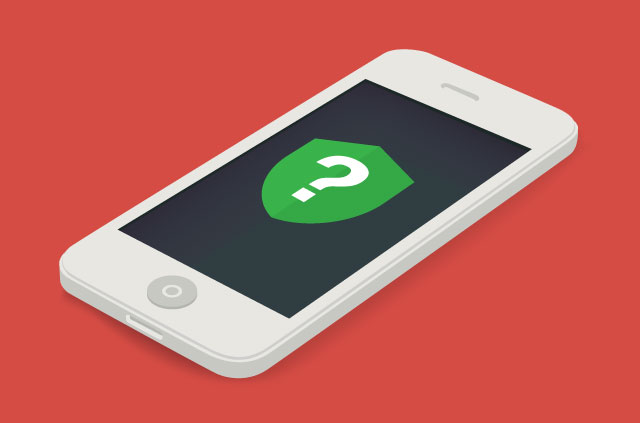If you’re going to take the time to set up a VPN, then it stands to reason that you’d want to use one on all your devices—not just your computer.
It’s not a stretch to assume that everything you store on your laptop or desktop you also store on your phone. Your bank login info, email passwords, social media accounts and gigabytes’ worth of personal photos should be enough to make anyone stop and agree.
A VPN keeps your network safe, at home and on the go
The internet is always changing, sometimes for the better, sometimes for the worse. As mentioned in a previous post, Donald Trump’s recent privacy deregulations have made it even easier for ISPs (internet service providers) to share your online info—including your mobile data.
A VPN can help circumvent these potential issues by masking your digital footprint. For most smartphones, installing a VPN is as simple as downloading and opening an app. You simply download the VPN client, input your user information, install the app and you’re able to browse securely in minutes.
But putting privacy aside, there are other reasons that make having a mobile VPN so useful.
1. Lets you access sites and services that may not be available in your area
A perfect example is the Google Play Store. Android users may not realize it, but like Google Play offers different content for different areas. If you connect to a VPN location in the U.K., then you’re instantly privy to all the games and apps that are available in that country.
All you have to do is use your VPN to connect to a server location in the country of your choice, create a new Google Play account, and you’re good to go.
2. It can speed up your internet
But if the privacy aspect isn’t enough to get you to set up a mobile VPN, chew on this: VPNs can also help bypass ISP throttling, meaning they can actually speed up your phone’s 4G networks.
Take the recent Verizon scandal as a perfect example. The major U.S. telecom company admitted to throttling users’ internet connections for streaming sites like Netflix and YouTube. It wasn’t until after a user had posted evidence of different speeds while using a VPN that Verizon publicly admitted it.
According to one tech-savvy Verizon user:
“YouTube is being throttled as well. In the ‘stats for nerds’ it would load at roughly 1,250 KB/s which translates to 10 Mbps. Put the VPN on and that number tripled easily.”
3. Gives you more opportunities to find better deals online
Another added benefit of having a VPN is the ability to check for deals in different countries. Most big-name sites today tend to charge different prices based on location. Someone in San Francisco may pay more for airfare than someone in a more rural area. In fact, a Gizmodo author published an entire post on how they were instantly able to save $100 on a flight by simply changing their VPN location from Miami to a VPN server in Canada.
There are no guarantees, and there’s definitely no one-size-fits-all location to choose from, but it’s a nice feature to have.
Tips to keep in mind when choosing a mobile VPN
Now down to brass tacks. Because VPNs have become something of a commodity over the past few years, an increase in popularity has also lead to an influx of faux services. To choose the right VPN, here are a few things to keep in mind.
- Kill switch: This is important for mobile users, as public WiFi networks are often unreliable. Whenever you lose internet service, a kill switch automatically locks your connection, keeping your info safe.
- No logs: On the same topic of free VPNs, you’re also going to want to make sure the service you go with doesn’t keep logs. Connection logs are standard; usage logs aren’t. A good way to check is to see if the VPN requires a monthly fee. You should avoid free VPNs at all costs.
- Defined encryption settings: Finally, make sure the VPN offers solid encryption. AES-256 is the standard to which all VPNs should be held. There’s nothing worse than thinking you’re safe only to realize later you were browsing unprotected.


Recent Comments